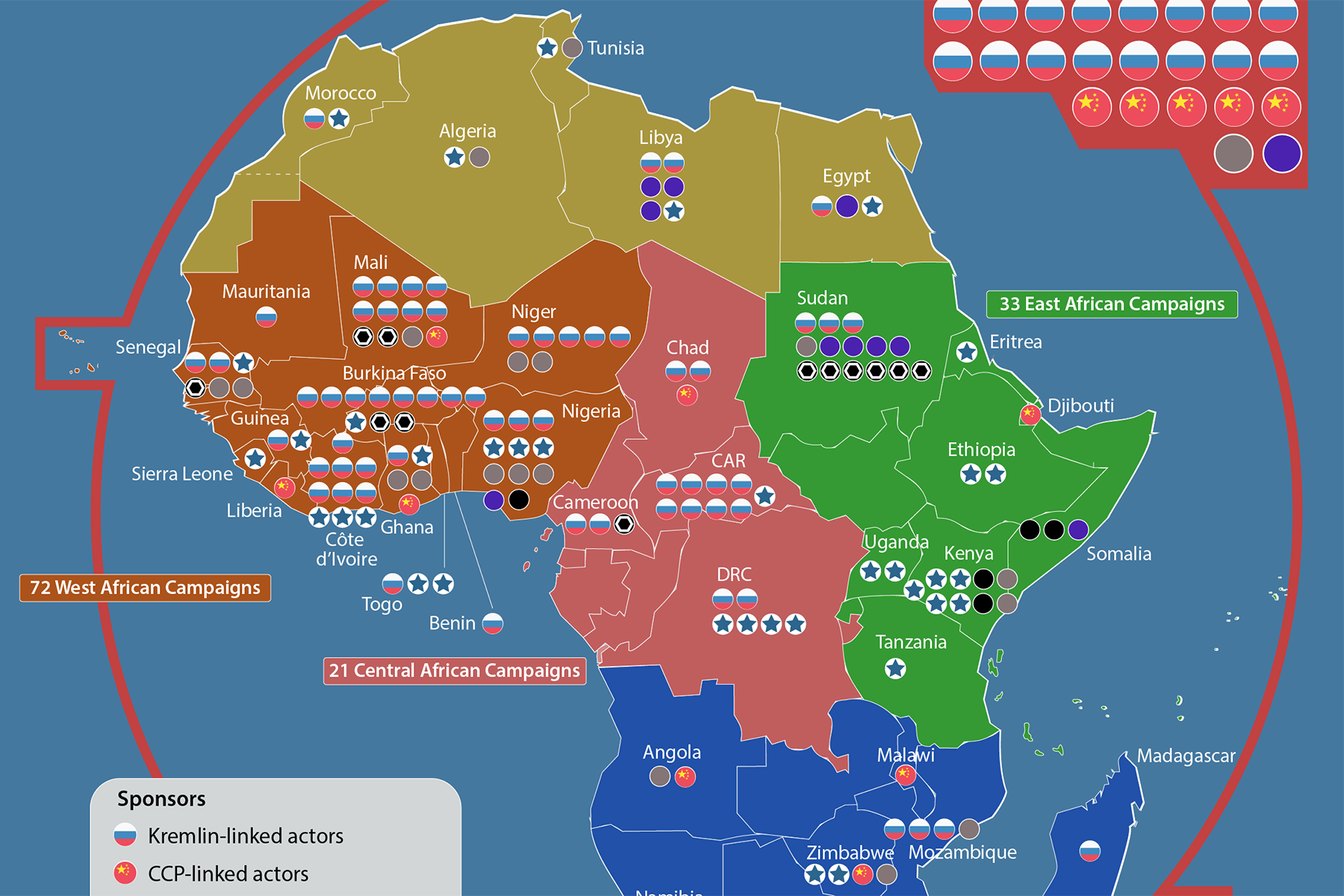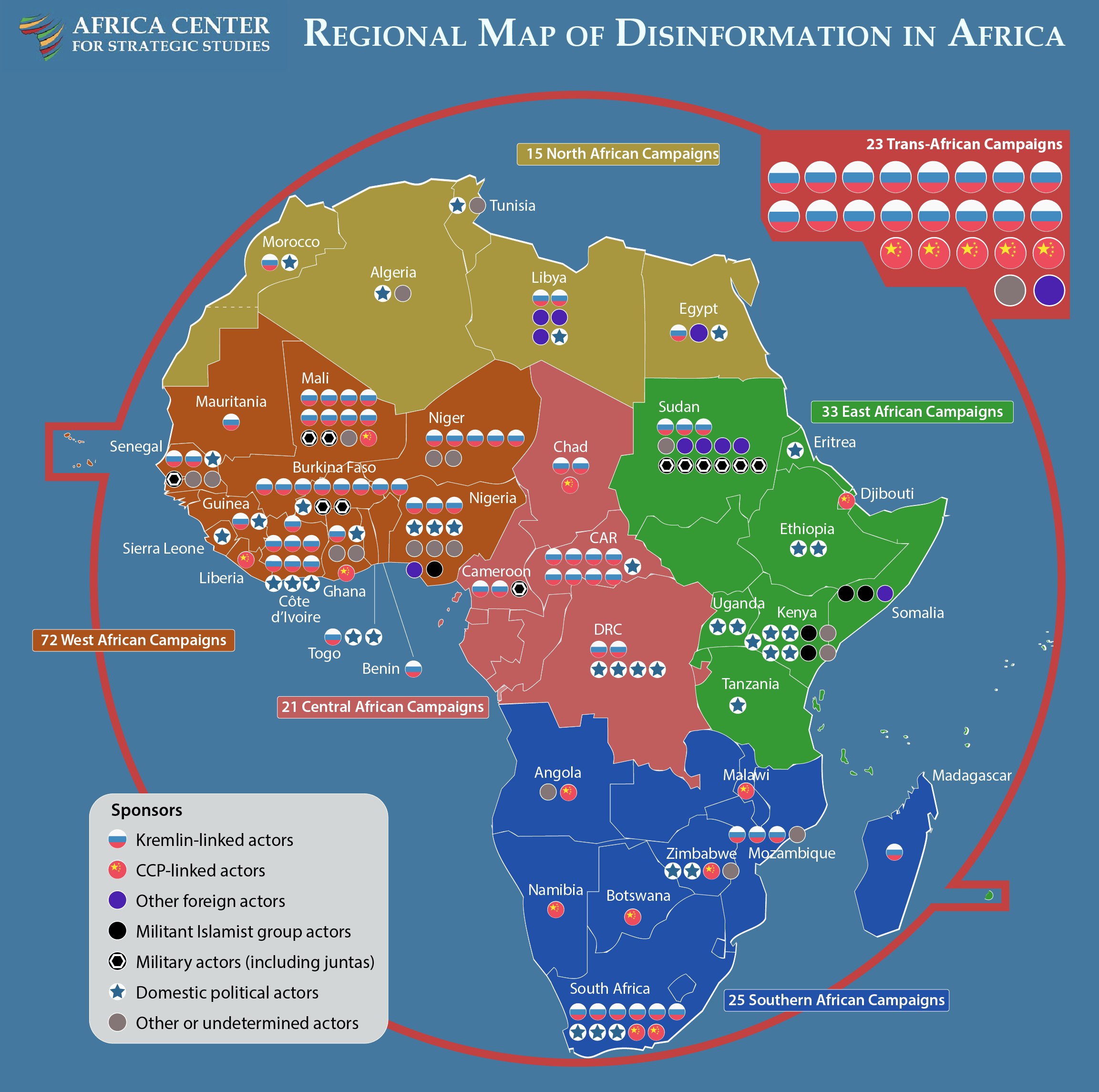By arming civilians who are poorly trained and have little to no respect for human rights, the military in Burkina Faso has brought the West African nation to the brink of civil war.

www.nytimes.com
Strategy of Recruiting Cheap Militiamen Backfires in Africa
By arming civilians who are poorly trained and have little to no respect for human rights, the military in Burkina Faso has brought the West African nation to the brink of civil war.
Dec. 15, 2024Updated 11:05 a.m. ET
Rainatou Diallo, wearing a teal and black shirt, sits on a bed with in a dim room.
Rainatou Diallo, 32, at a family home in Ivory Coast, where she fled to after her husband was killed in Burkina Faso.
By Elian Peltier
Photographs by Arlette Bashizi
Elian Peltier and Arlette Bashizi traveled across northern Ivory Coast to document the violence faced by civilians who fled neighboring Burkina Faso.
They were falling asleep on a thin mat that they had been sharing since they were married five years ago. Suddenly, the roar of motorcycles woke them up. Armed men then dragged Rainatou Diallo and her husband, Adama Diallo, out of bed and into their courtyard.
Without a word, the men shot Mr. Diallo dead. As Ms. Diallo fled the village, one of many engulfed by violence in Burkina Faso, she recognized her husband’s masked killers: They were neighbors.
Burkina Faso, a nation that once prided itself on tolerance and peaceful interethnic relations, is now home to one of the deadliest conflicts in West Africa. Since the current military leader, Capt. Ibrahim Traoré, seized power in a coup in 2022, he has escalated a war against Islamist insurgents that has now killed tens of thousands of people and displaced nearly three million others.
To beef up the ranks of his embattled military, Captain Traoré’s government recruited tens of thousands of men into a civilian militia, known as the Volunteers for the Defense of the Homeland. The militia was created by a previous leader to protect communities against the insurgents. But under Captain Traoré, it has spread unchecked violence and pitted local populations against each other, with minority ethic groups being brutally targeted in what some analysts fear will lead to a civil war.
People can be seen walking behind three motorbikes parked on a dirt path.
The Niornigue camp, where more than 6,000 Burkinabe asylum seekers are taking refuge in northern Ivory Coast.
Acts of violence against local populations involving militiamen have more than doubled since Captain Traoré’s coup, according to data compiled by the Armed Conflict Location & Event Data Project. The militiamen have carried out executions, forced disappearances or looting every six days on average, the data shows.
Arming civilians who have poor training and little respect for human rights and then giving them near total impunity is not unique to Burkina Faso.
In northeast Nigeria, members of a civilian militia assisting the country’s fight against Boko Haram have been accused of sexual violence, child recruitment and summary executions. In Sudan, the militia known as the Rapid Support Forces triggered a war that has caused the world’s largest humanitarian crisis.
In each case, the strategy of using a civilian militia to augment military power has backfired, deepening a spiral of violence that further endangers the local population and fuels interethnic tensions.
Like Ms. Diallo, most of the three dozen refugees interviewed by The New York Times during a recent 500-mile trip in neighboring Ivory Coast, near the Burkina Faso border, said that the Volunteers for the Defense of the Homeland, or V.D.P., had forced them to flee by evicting them or killing their relatives.
“They had been attacking other villages, so we knew our turn would come,” Ms. Diallo, 32, said on a recent morning in the town of Ouangolodougou, in northern Ivory Coast.
Burkina Faso’s government did not respond to a request for comment.
Nearly 150,000 people have fled Burkina Faso to four neighboring countries since last year. Ivory Coast has accommodated the largest number of them, about 65,000, in government-run asylum centers and host communities.
Because most of the Qaeda-affiliated insurgents waging a war in Burkina Faso are from the Fulani ethnic group, Fulani civilians have often been accused of collaborating with the jihadists and are disproportionately targeted by the militia. Researchers have described the militia’s violence — and the state’s complicity in it — as “a public policy.”
There is a direct connection between the scaling up of the Volunteers for the Defense of the Homeland under Captain Traoré and the “targeting of Fulani populations and the massive influx of refugees in Ivory Coast,” said Jean-Baptiste Zongo, an independent security analyst from Burkina Faso living in Ivory Coast.
Refugees in Ivory Coast shared memories of abuses they faced “on the other side,” speaking in whispers that were muted by rain battering iron roofs. Housseinou and Hassan Ly, twin brothers and teachers of the Quran, said they had fled northern Burkina Faso in September 2023 after civilian militiamen abducted their uncle and killed their brother on the side of the road.
“Our country is in crisis, and the current authorities think that giving people weapons to kill an entire group is the solution,” said Ali Barry, 30, a Fulani nurse who said he fled his village in December 2022 after militiamen executed several neighbors and his brother.
Leaders of host communities, humanitarian workers and local authorities in Ivory Coast have corroborated the testimonies of the refugees. But the influx in northern Ivory Coast, the country’s poorest area, is testing its celebrated spirit of “Akwaba,” or hospitality.
“Right or wrong, the asylum seekers, who are mostly Fulani, are stigmatized,” said Paulin Yéwé, a security and defense adviser in Ivory Coast who works for the president and oversees the accommodation of refugees in the north.
Even in the relative safety of Ivory Coast, refugees live in dire conditions. The World Food Program has halved a monthly stipend, to $7.50 from $15 per registered refugee in Ivory Coast, because of dwindling funds. Most refugee children do not go to school.
“We were initially afraid because there were so many of them,” said Fabaraka Ouattara, the chief of Linguékoro, a village in Ivory Coast that has accommodated about 300 refugees. “They said they were fleeing war, but we didn’t know whether they were coming with weapons.”
On a recent morning, Ms. Diallo, whose husband was killed in the courtyard, prepared okra and cassava dough in a home in Ivory Coast rented by her father, who fled Burkina Faso earlier this year with 12 other family members. He rents the home for about $20 a month.
“We lived together, our kids were going to school together,” Ms. Diallo said about life back in Burkina Faso before local men began joining the militia. Once they joined the V.D.P., she said, neighbors stopped greeting Fulani families. Then the raids and the killings started.
Ms. Diallo’s father, Sékou Diallo, said the militiamen were increasingly targeting other ethnic groups, too, like the Mossis and Lobis. “They would come at night. We’d wake up in the morning and a man would have disappeared — Fulani or not,” he said.
Ms. Diallo lowered her head as her father spoke. She did not bury her husband because she could not go back to her village without risking death. She touched a delicate ring, the only remaining token of their love, she said.







 africacenter.org
africacenter.org




 never heard anyone refer to him as that
never heard anyone refer to him as that